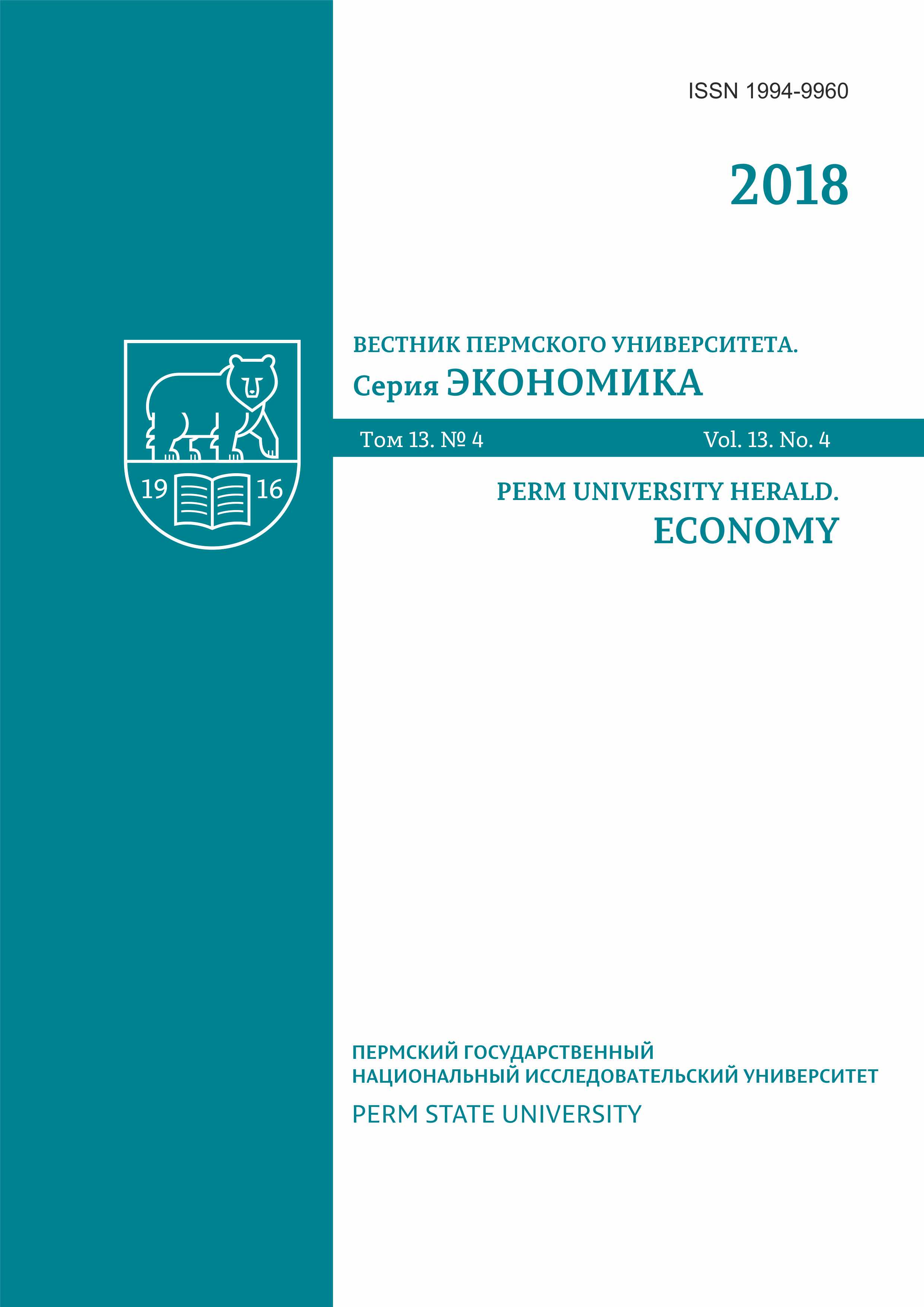Vol. 13 No. 4 (2018)

The latest issue of the journal for the past 2018 starts with an extraordinary article devoted to the analysis and the development of methods for human capital amount assessment in cost terms that consider parents labour costs including those associated with conscious reasonable activity on birth, care, up-brining, education, development, socialization and professionalization of children. The activity is made by parents, close relatives and specialists in the social reproduction field on the instruction and/or by consent of parents (and under their control) at all stages of human capital reproduction to form its qualitative and quantitative characteristics.
A theorem for parameter recovery accuracy assessment has been formulated and proved in the section “Economic and mathematical modelling”. An algorithm that solves the task of parameter recovery for dynamic models based on observation results for the social and economic process under modelling with an accuracy increasing the conventional procedure accuracy of the least squares method and its generalization has also been described there. A cognitive model of correlation between a regional social and economic system and a higher education system has been built and the balanced development of a regional system of higher education considering the territory demands has been assessed using impulse modelling tools and scenario analysis. Pricing factors affecting regional wheat markets have been assessed with panel data models, the significance of the alteration of balanced indicators of grain stock use has been revealed, the existing state measures regulating grain stock amount have been considered and recommendations for efficient policy implementation for grain stock control to provide food security in Russia have been suggested.
In the section “Regional and municipal economy” an organizational mechanism for inter-cluster cooperation management has been developed on the resource oriented approach basis; an information model of the resort and recreational system of towns and district centres with GIS data bases has been suggested; the significance of personal income tax in municipal budgets has been revealed and the trends that will improve the policy of its distribution in the budget system of the Russian Federation have been determined.
The next section is devoted to the development of methodological and methodical tools for reasons, challenges and consequences of the youth start-up movement development in Russia and possible mechanisms to promote the movement in the country have been suggested; systematic challenges of process management use in an organisation have been identified and the content of the stages of the process management practice implementation has been justified; methods that assess subsidized air transportation costs have been provided including economic and technical and economic indicators of the assessment of their efficiency and the assessment of social and economic results of the budget resources use to make air transportation more affordable for the residents of remote districts of Russia and to provide air transportation at the unclaimed destinations.
In the section devoted to acute issues of accounting, audit and economic analysis the vector for the improvement of auditing in terms of Russian economy digitization including the alteration of the legislative regulation system and audit practice has been determined on the basis of the retrospective analysis of audit market development in Russia and abroad.









